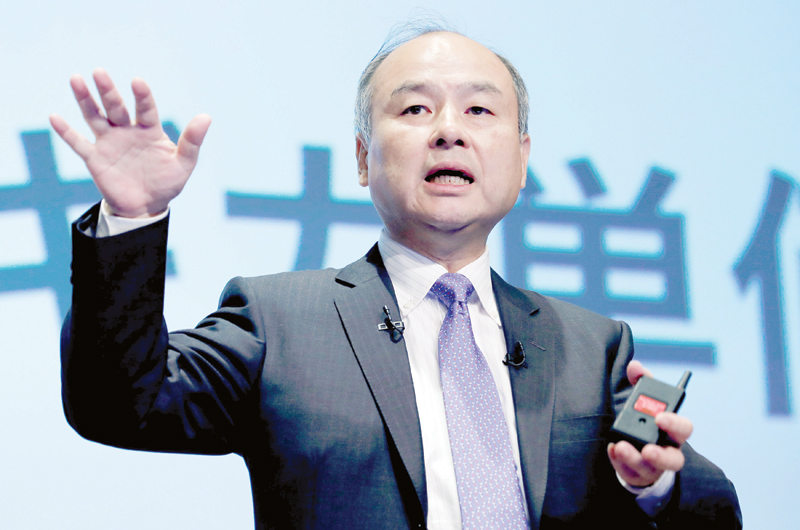

SAN FRANCISCO: SoftBank Group Corp has agreed to give up board seats and access to sensitive information, take a more passive role in start-ups and make other concessions to get government clearance for its technology deals in the United States.
These manoeuvres come as the Japanese investor confronts a new US law aimed at cracking down on foreign investors.
SoftBank’s investment style has made it a frequent visitor of a US government group known as the Committee on Foreign Investment in the United States (CFIUS), charged with reviewing foreign investment for national security and competitive risks.
“We know the deals are going to be reviewed,” Marcelo Claure, chief operating officer of SoftBank Group Corp, said in an interview with Reuters this week. “We have abided by what the US government wants.”
SoftBank likes to take large stakes in companies working on artificial intelligence, data analytics, financial services and self-driving cars — technologies increasingly viewed as critical to national security. This puts them in the crosshairs of a law signed by US President Donald Trump last year expanding the powers of CFIUS.
Giving up board seats and access to private information would make SoftBank less of a threat in the eyes of CFIUS, giving its deals a better chance of approval.
“We would not accept this if we were in the business of running companies,” Claure said of the concessions. “We’re not. We are in the business of investing.”
Claure declined to provide specifics on investments where SoftBank has had to make concessions or give up board seats and the US government does not comment on CFIUS reviews.
The regulations have deterred many foreign investors from even attempting investment in US tech companies.
“Everything is a conversation with the government so you figure you are going to pick your battles,” Claure said.
One regulatory battle SoftBank has chosen, so far, to sit out is regarding Uber Technologies Inc’s board seats. As part of an $8 billion investment SoftBank closed in January 2018, which gave it a 16 per cent stake in Uber and made it the largest shareholder, SoftBank was supposed to get two board seats.
SoftBank successfully completed its investment in Uber, but has not yet completed the formal CFIUS review necessary for the two board seats, Claure told Reuters.
As a result, more than a year later, Claure and Rajeev Misra, who oversees SoftBank’s $100 billion Vision Fund, have not taken their board seats. The result is that Uber on Thursday kicked off its initial public offering with a board of 12 directors, not the 17 members long ago agreed upon.
Another three independent directors cannot be appointed until after Misra and Claure join the board.
By the time Uber’s shares start trading on the New York Stock Exchange in early May, SoftBank may have missed its opening. When it becomes public, Uber’s bylaws will change, erasing old agreements with its directors, according to Uber’s IPO filing posted Thursday.
Claure said SoftBank may still follow through with seeking CFIUS approval, but added that “it hasn’t been a priority for us” and SoftBank still has the access it wants to Uber’s executives without the board seats. — Reuters
Oman Observer is now on the WhatsApp channel. Click here



